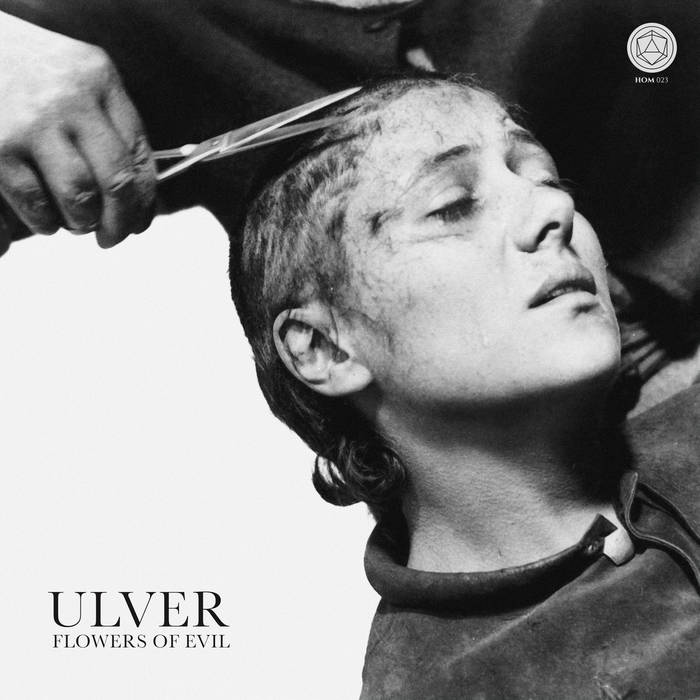
Ulver have charted a remarkable journey over the course of twenty-seven years. Now entirely unrecognisable from the band that recorded Bergtatt – Et eeventyr i 5 capitler, the band have evolved and mutated over twelve albums, incorporating black metal, drone, ambient, jazz and dark wave whilst, remarkably, making each step sound like the most natural thing in the world. Few bands could pull off such a feat, and yet it says much of the honesty that lies at the heart of Ulver’s transformations, that they’ve taken a good deal of their audience with them on their eclectic explorations.
Released in 2017, The Assassination Of Julius Caesar was a masterpiece. It saw the band adopt a more streamlined and synth-oriented sound and the subsequent live shows were mesmerising journeys into the unknown, the band swathed in smoke and lasers as the music pulsed and swirled around the venue. Few albums in recent years have proved so utterly absorbing and addictive. Superficially, the melodies of Assassination were simplistic; but beneath the glossy sheen lay a series of beautifully constructed lyrics that raced through history and sonic elements that only started to make themselves known after the fourth or fifth listen. As such, it’s something of a relief that follow-up Flowers Of Evil feels like a continuation rather than a whole new journey; the band joined once more by Michael Rendell and Martin Youth Glover for a pristine sonic exploration of mankind’s fall from grace.
It opens in a haze, as if the music of Assassination was still echoing in the studio from the previous sessions. Then, from the heart of the noise, Kristoffer Rygg’s rich vocals ring out: “We have seen the burden, God has laid upon the human race”, providing the album with its thematic weight in one simple sentence that contains more potential depth than most bands incorporate into an entire album. Keeping things paired back, it takes a full two minutes for the sweeping synth noise to take form, a looped electronic beat finally emerging to drive the piece forward as mutated guitars shift and eddy through the mix. With Rendell and Youth at the helm, there’s such space and depth to the mix and, as with Assassination, it’s only once you get past the initial hooks that you realise how much is going on beneath the surface in order to give the song its enigmatic quality. It gives way to the previously-released Russian Doll, a pulsing piece that feels like the natural successor to gorgeous sweep of Nemoralia, with its dense vocal harmonies, and arcing guitar lines belying the dark subject matter. Referencing Icarus and Philip K. Dick as metaphors for mankind’s burning plunge to the earth, Machine Guns And Peacock Feathers imagines the apocalypse as a last dance in a down-at-heel disco, the floor sticky with the residue of spilled drinks and blood from the numerous, alcohol-fuelled fights. With a syrupy beat and gorgeous, multi-hued vocals, it’s an album highlight that’s more Madonna than Mayhem, and it paves the way for the dirty dark wave of Hour Of The Wolf. A filmic piece that feels like Depeche Mode covering Anathema, the sense of despair is articulated in guitars that seem to moan like the wind as the lyrics speak of the loss and longing that emerges in the hour before dawn.
A hard track, Apocalypse 1993 may point musically towards the dancefloor, but the Waco-referencing lyrics ensures a sense of discomfort, which is only exacerbated by the empathy-bypass samples of officials discussing the massacre. Such juxtaposition lies at the heart of Ulver’s greatness, and their ability to render the truly evil commonplace reflects the way mainstream media twists hatred into the background chatter of the everyday, a reflection that makes the record increasingly uneasy the more you listen. The album’s second single, Little Boy, is built around a dark bass sequence that gives way to taut percussion and an underpinning anger that sees the track take on an industrial edge reminiscent of PIG. In contrast, the aptly named Nostalgia adopts a gentle shuffle that taps into the titular emotion and leaves the listener feeling gently bereft. The album wraps up, a mere forty-minutes after it began, with the emotionally shattering A Thousand Cuts. A beautifully textured finale that seems to capture an indefinable sense of loss in musical form, it brings the curtain down on a remarkable, startlingly human album, that shimmers with barely restrained emotion.
It took time for The Assassination Of Julius Caesar to fully sink in, and I’m conscious I’m writing this review after only a few days of listening. With Kristoffer’s oblique lyrics hiding in plain sight within some of the most pristine and meticulous musical arrangements of the past year, Flowers Of Evil is an emotionally-charged, beautifully recorded album that provides the perfect soundtrack to the fractured societies of a Covid-ravaged world. Expanding upon the sonic palette of Assassination rather than evolving away from it, Flowers Of Evil is the perfectly-crafted sequel the band needed to make and it stands as yet another masterpiece in a catalogue that now contains an embarrassment of riches. 9.5/ 10



